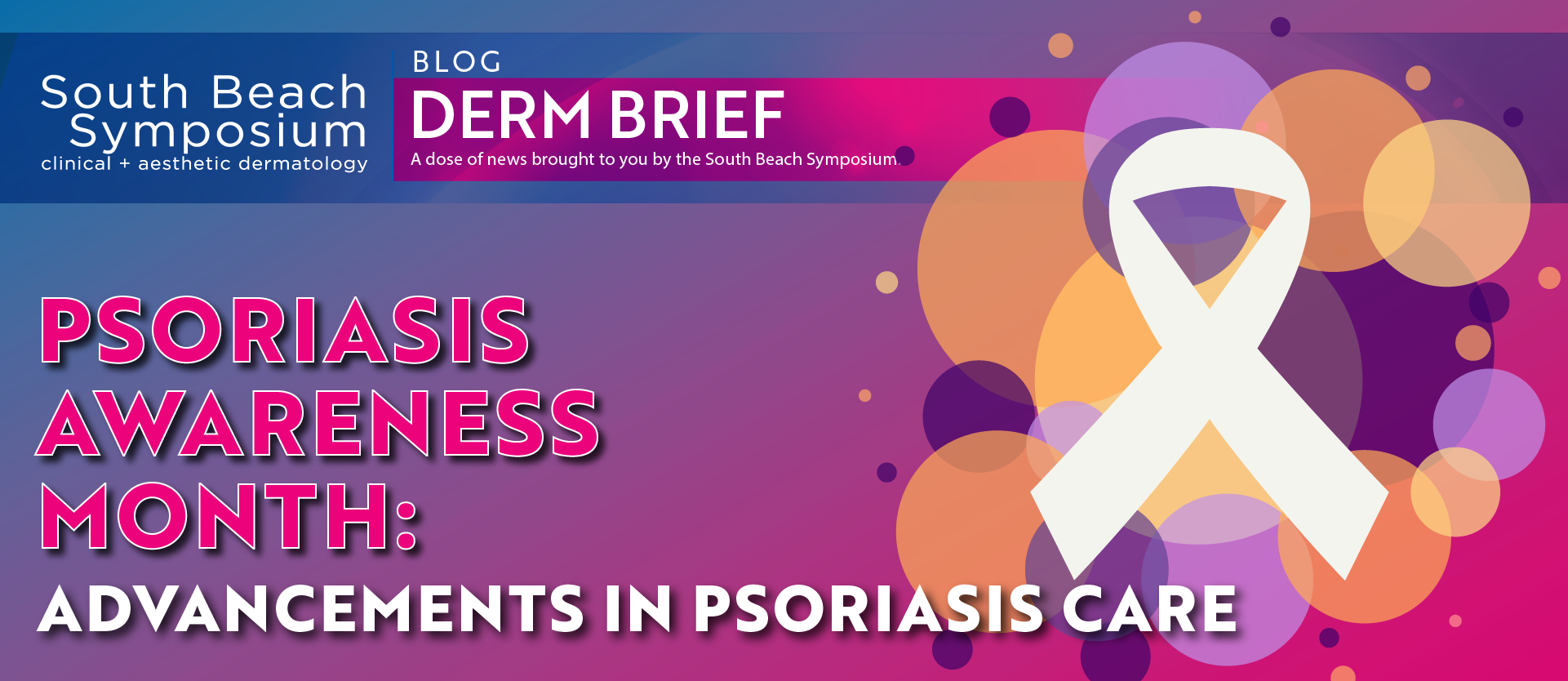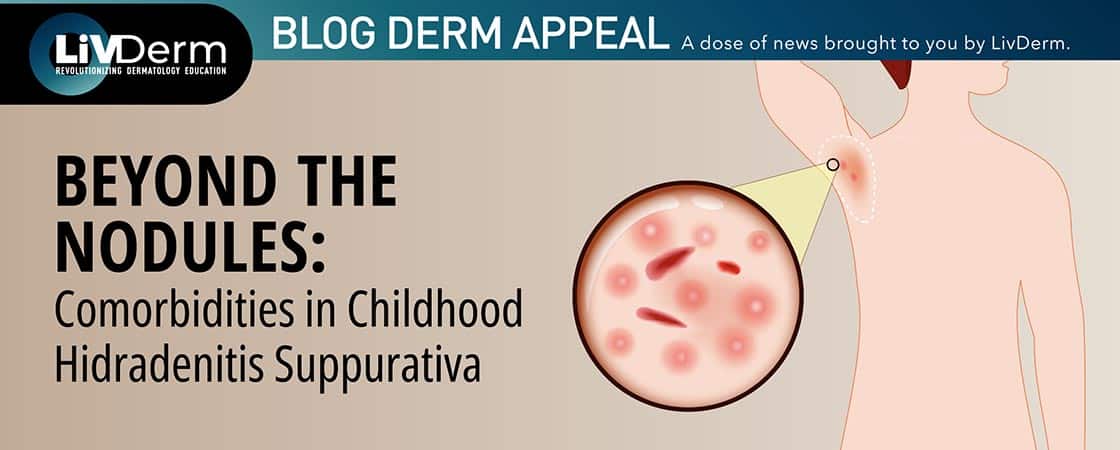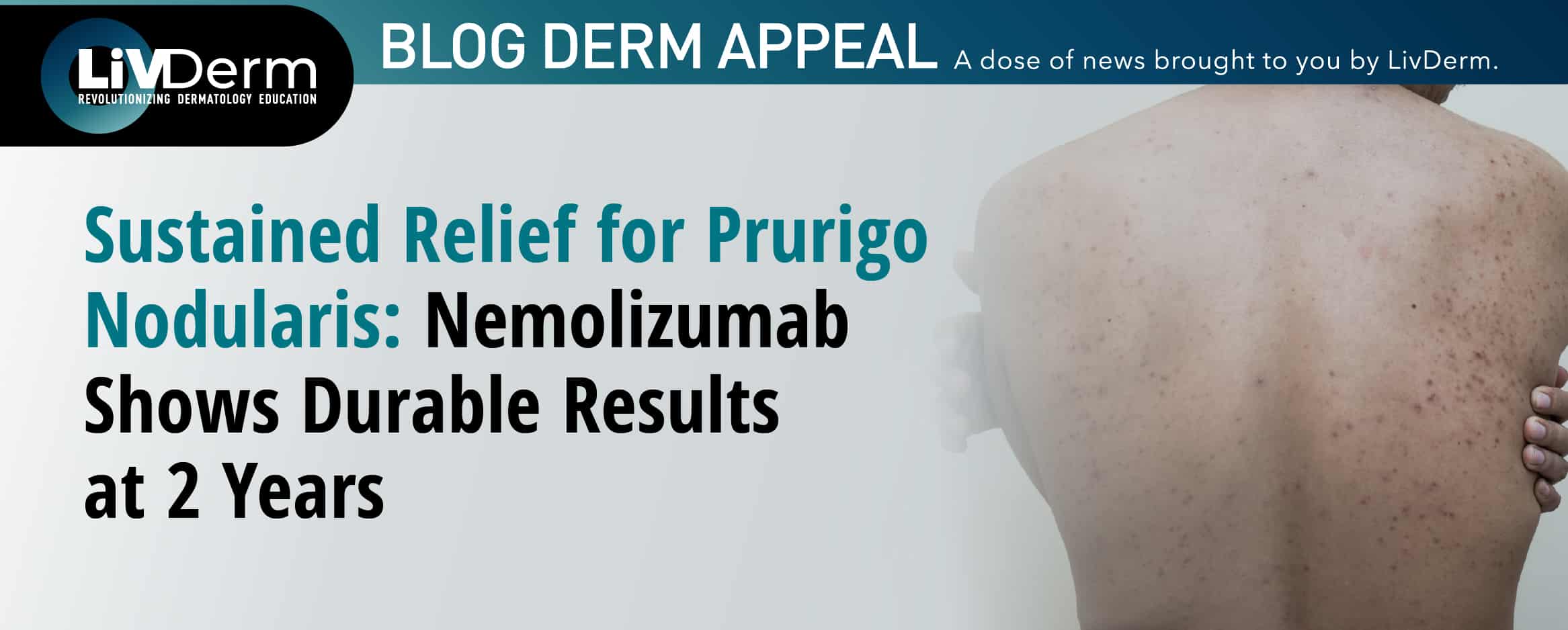August marks the beginning of Psoriasis Awareness Month during which healthcare organizations, such as the National Psoriasis Foundation (NPF), raise awareness for the 8 million Americans affected by the disease. Often regarded as a simple skin condition, psoriasis has been linked to diabetes, heart disease, and other detrimental comorbidities in nearly a third of patients and can result in a significant reduction in quality of life.
In recent years, increased research efforts have brought new insights about mechanisms of action underlying the condition, elucidating the connection between psoriasis and the autoimmune response. This growing understanding has contributed to the development of novel treatment options – including biologics, topical drugs, and oral medications – launching a new era of psoriasis care.
Biologics
A class of medications derived from living organisms including human, animal, or bacteria cells, biologics are experiencing a surge in popularity for the treatment of moderate to severe psoriasis. Administered either as injections or intravenous infusions, they work by targeting and lowering overactive autoimmune responses to decrease inflammation. Biologics have been found to curb T cell activity, block TNF-alpha proteins, and target interleukins thereby reducing inflammatory reactions in psoriatic patients.
In clinical trials, treatment with biologics reduced psoriasis symptoms by at least 75% in the majority of patients. Although they are safe for most with a high benefit-to-risk ratio, biologics may increase the risk of infection, cancer, and other health complications. Additionally, strict patent protection has made biologics and biosimilars – high similar copies of biologics – expensive and the process of gaining FDA-approval difficult.
Currently, the FDA approves several biologic medications for the treatment of moderate to severe psoriasis including Humira, Cyltezo, and Siliq, while many more await approval and licensing. A complete list of approved biologics can be found on the FDA website.
Apremilast (Otezla)
Approved in 2014 to treat psoriatic arthritis and plaque psoriasis in adults, apremilast – sold under the trade names Otezla and Aplex – controls inflammation by functioning as a phosphodiesterase-4 (PDE-4) enzyme inhibitor. Unlike biologics, apremilast is taken orally in the form of a 30-milligram tablet (twice daily); treatment is meant to be continuous to maintain improvement however, results are generally less favorable than those of biologic medications.
Apremilast’s safety profile does not require lab tests and is generally well-tolerated by patients, however, reported side effects may include gastrointestinal problems such as diarrhea and nausea as well as headache, weight loss, and fatigue. Close monitoring of patients for weight reduction and signs of depression is recommended.
Topical Medications
To date, corticosteroids and over-the-counter topical ointments, which reduce inflammation by normalizing excessive cell reproduction, are the most frequently used treatments for psoriasis. Recent advancements in topical medications have brought a novel FDA-approved drug – Enstilar – to the market. Although the combination of vitamin D-based calcipotriene and corticosteroid betamethasone dipropionate already exists in the form of an ointment, Enstilar delivers the medication in an easily administrable foam.
In a clinical trial of 426 psoriatic patients, researchers found that using Enstilar foam once daily for four weeks significantly reduced itch and cleared symptoms in over 80% of patients. According to the study, patients experienced symptom improvement as soon as three days after beginning treatment which persisted for the duration of the trial.
Enstilar is one of the strongest available topical medications for psoriasis and has proven efficacy in patients with psoriasis in areas of thicker skin such as the knees, elbows, and scalp.
It is also recommended for patients who do not require the full-body effects of biologic therapy and can benefit from targeted application.
Alternative Treatments
In addition to pharmacologic therapies, psoriatic patients frequently use complementary or alternative treatments to alleviate symptoms when traditional methods prove unsuccessful. A recent survey from the George Washington School of Medicine and Health Sciences found that patients reported utilizing treatments, such as vitamins D and B12 supplements, despite a lack of exhibited efficacy and scientific evidence. Dead Sea treatments, dietary changes, and topical botanicals were frequently reported and revealed therapeutic benefit.
As evidence for the efficacy of alternative treatments is mostly anecdotal, further research is needed to conclude whether complementary therapies may actually improve patient satisfaction and outcomes. Meanwhile, the latest approved pharmacologic medications for the treatment of psoriasis show great promise in the alleviation of patient suffering and improvement of quality of life.
While other novel treatments – such as new biologics – are in the pipeline, awaiting further clinical trials and FDA-approval applications, forthcoming research will aim to uncover more information about genetic involvement in psoriasis. Through the study of genetic predispositions and identification of root genetic causes, researchers may be able to develop improved treatment methods and potentially, a cure for the condition.

















